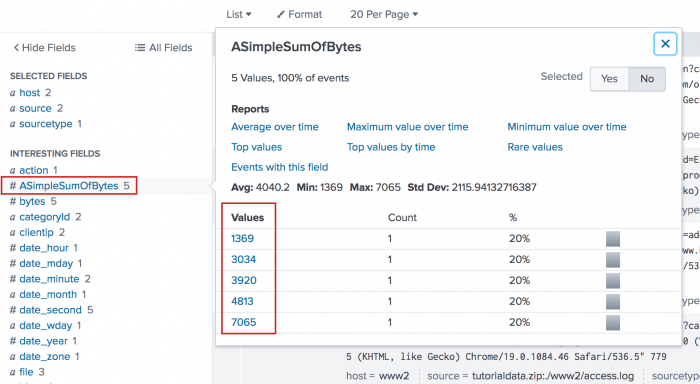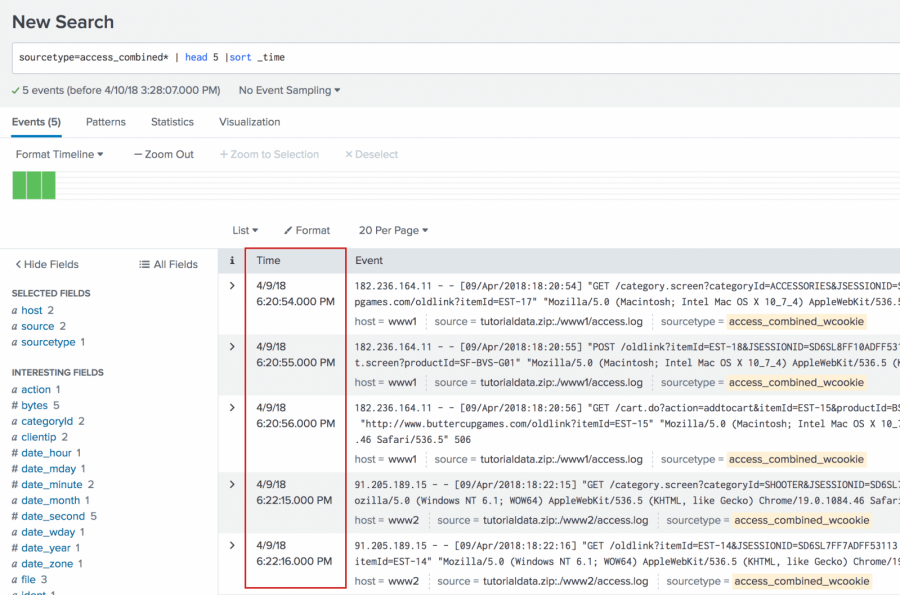
Streamstats Splunk Documentation
If false the search uses the field value from the previous event. I know that I can sort It and use a command like streamstats. For the first event there are no previous events The value for the bytes field is returned. Add a running count to each search result In the following search for each search result a new. Streamstats window1 currentf lastDATE as DATENEXT by KEY_ID. The streamstats command calculates a running total of the bytes for each host into a field called..
Use the streamstats command to produce a cumulative count of the events Then use the eval command to create a simple test If the value of the count field is equal to 2 display yes in. You can use the streamstats command with other commands to create a set events with hourly timestamps For example you can use the repeat function with the eval. The streamstats command adds a cumulative statistical value to each search result as each result is processed For example you can calculate the running total for a. The streamstats command calculates a running total of the bytes for each host into a field called total_bytes The running total resets each time an event satisfies the actionREBOOT. My long set of SPL starts with the typical filtering on the primary search line It then uses various eval foreach streamstats and eventstats commands to process..

Streamstats Splunk Documentation
Eventstats calculates a statistical result same as stats command only difference is it does not create statistical results it. Having the statistics aggregated onto the original events is great but what if one is interested in what is happening in a. Eventstats command computes the aggregate function taking all event as input and returns statistics result for. Like many Splunk commands all three are transformational commands meaning they take a result. The streamstats command is similar to the eventstats command except that it uses events before the current event to compute the aggregate statistics that..
..
Comments